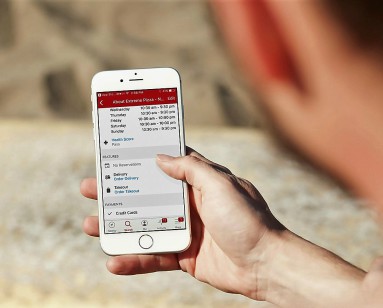San Rafael, CA – Fifth-generation cellular wireless technology – commonly called 5G – is on the cusp of implementation in many areas of the developed world, and Marin County is trying to learn as much as it can before it takes place here. The Marin County Board of Supervisors has planned a public workshop for 5:30 p.m. February 5 at the Marin County Civic Center to hear resident voices about 5G.
 Cell service providers are conducting 5G test markets in major cities.
Cell service providers are conducting 5G test markets in major cities.
Around the world, cell service providers are conducting test markets in major cities, and the first 5G cell phones are expected to be released sometime in 2020. Each generation of cellular technology is defined by its transformative increase in speed and its incompatibility with the previous generation. Circa 1991, 2G introduced text messaging. In 1998, 3G introduced mobile applications, internet access, and video calls. By 2008, 4G introduced high-definition and 3D video. As an example of 5G’s enhanced speed and connectivity, a user could download an entire movie on a phone or mobile device within a few seconds.
The Marin County Community Development Agency (CDA) oversees the Marin County Telecommunications Facilities Policy Plan, which regulates telecommunications equipment sites and mitigates visual impacts of cell transmitters throughout the county. Through that plan, CDA would oversee local implementation of new equipment designed to deliver 5G service.
At the workshop, the Board of Supervisors will discuss the emerging issues associated with a federal ruling and provide direction to staff about potential amendments to the County’s policies and regulations. Recently, the County joined a court action to take a stand with other public agencies against the federal ruling for 5G deployment. The County took the legal step to protest the Federal Communications Commission’s seizing of local control on the deployment of 5G and how implementation costs can be recovered.
Cell phones send a receive signals from cell phone towers. The signals are a form of electromagnetic radiation known as radiofrequency (RF) energy. RF energy is not as powerful or as damaging to cells or DNA as some other kinds of electromagnetic radiation, such as X-rays or ultraviolet rays from the sun. Some scientific studies have suggested, however, that there may be increased health risks from exposure to RF energy.
Unlike the network of microwave dish and panel antennas, 5G technology requires the installation of a greater number of smaller antennas because they have shorter range (less than 1,000 feet) compared with existing 4G. A potentially denser network of closely spaced antennas would be installed much closer to the cell phone users. In most cases, 5G devices are affixed to existing light poles, utility poles, and traffic light poles within the public right-of-way, including in residential districts.
To ensure community engagement, CDA created an online survey in December 2018 to measure support and concerns for 5G. Just over 200 people have taken the survey as of late January, and 59 percent of respondents indicated they would support new or changes to existing wireless telecommunication services if it would maintain or expand service. However, 52 percent of respondents expressed at least moderate concern about the upgrades to wireless communication devices and exposure to electromagnetic fields.
The CDA survey remains open on the County’s Open Marin online tool through March 31, and results will be considered by decision makers who are considering policy changes. CDA maintains a new webpage devoted to 5G as well.
The California Department of Public Health has shared information about cell phone technology as it relates to health and included links to other key sources such as the World Health Organization, the U.S. Centers for Disease Control and Prevention, and the American Academy of Pediatrics.
The February 5 workshop will be webcast live on www.marincounty.org and archived there for later viewing. The Board of Supervisors chamber is in Suite 330 of the Civic Center at 3501 Civic Center Drive, San Rafael.
Residents may send an email, mail a letter or attend a public meeting to share thoughts about 5G with County officials. Emails may be sent to Immanuel (Manny) Bereket, Senior Planner. Mail letters to him at Community Development Agency, Marin County Civic Center, Suite 308, 3501 Civic Center Drive, San Rafael, CA 94903.
All public meetings and events sponsored or conducted by the County of Marin are held at accessible sites. If you are a person with a disability and require information or materials in alternative formats – or if you require accommodation to participate in a county program, service or activity – please contact department staff at (415) 473-7331 or (415) 473-4381 (voice/TTY) or e-mail disabilityaccess@marincounty.org.